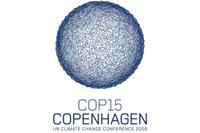Copenhagen summit: good that it failed
euinside, January 21, 2010
 The participants in the UN climate change summit in Copenhagen in December 2009 did the planet a favor by refusing to endorse a binding agreement to drastically reduce carbon emissions. This is the opinion of the director of Copenhagen Consensus Center Bjorn Lomborg, who is also the author of the book "Cool It: The Skeptical Environmentalist's Guide to Global Warming." According to him, the world leaders' inability to make progress may be the nudge the international community needs to face the real inconvenient truth: that after nearly two decades of fruitless efforts, it's time to give up our Rio-Kyoto-Copenhagen fantasy and get real about combating global warming.
The participants in the UN climate change summit in Copenhagen in December 2009 did the planet a favor by refusing to endorse a binding agreement to drastically reduce carbon emissions. This is the opinion of the director of Copenhagen Consensus Center Bjorn Lomborg, who is also the author of the book "Cool It: The Skeptical Environmentalist's Guide to Global Warming." According to him, the world leaders' inability to make progress may be the nudge the international community needs to face the real inconvenient truth: that after nearly two decades of fruitless efforts, it's time to give up our Rio-Kyoto-Copenhagen fantasy and get real about combating global warming.
In an article for the Washington post last week Bjorn Lomborg wrote that in 2 points underlie the issue of global warming: First, developing nations have no intention of letting the developed world force them to stop using carbon-emitting fuels. They are understandably wary of any policy that might curtail the domestic economic growth that is allowing their populations to clamber out of poverty. And that is precisely what drastically reducing their carbon emissions would do.
Second, even for more-developed economies, trying to force drastic cuts in carbon emissions makes no economic sense. All the major climate economic models show that to achieve the much-discussed goal of keeping temperature increases under 2 degrees Celsius, we would need a global tax on carbon emissions that would start at $102 per ton (or about 90 cents per gallon of gasoline) -- and increase to $4,000 per ton (or $35.51 per gallon of gasoline) by the end of the century. In all, this would cost the world $40 trillion a year. Most mainstream calculations conclude that this is 50 times more expensive than the climate damage it seeks to prevent, the environmentalist writes.
Bjorn Lomborg offers a different solution. Given that global energy demand is expected to double by 2050, the only way to reduce (if not eliminate) our use of fossil fuels without crippling the world economy is to radically ramp up green-energy technologies -- to the point where we can increase our reliance on them by several orders of magnitude. Instead of condemning billions of people to continued poverty by trying to make fossil fuels more expensive, we should make green energy cheaper. This means radically increasing spending on research and development, Lomborg points out.
More about the climate conference in Copenhagen you can read here.
 | © White House press service
| © White House press service | © Swedish Presidency
| © Swedish Presidency | © COP15
| © COP15